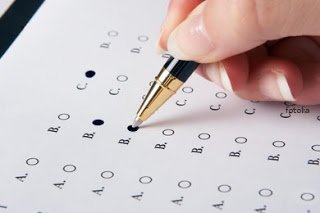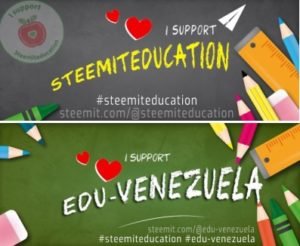TEACHER ROOOM: The importance of teaching to think # 2 - Metacognition in the classroom.

Source
In this part we will work with a group of students: first, we will start with a planning that has as a central focus a metacognitive strategy, planning and how you can work with it in the classroom, taking into account the four metacognitive knowledge (person, task, strategy and environment); Second, the written composition will be addressed in terms of reflection and metacognitive knowledge of each of the processes involved in it.
Example: using the Planning strategy
The teacher in the classroom should help students master the metacognitive strategies to obtain the benefits of the two functions they possess. With metacognition, the student becomes aware of what they know about the subject (knowledge function) and, in addition, allows to regulate the evolution of the task in the course of its execution, evaluating the intermediate variables, if necessary, modify them and obtain them success (control function).
Knowing the four variables that offer knowledge to the student (variable of the person, the task, the strategies and the environment) and controlling the development of the task requires exercises and practice.
It is convenient to start with simple activities that allow the student to realize the value of these strategies, and thus motivate them to learn them. The learning of metacognitive strategies must start from the definition of the three knowledge: what is (declarative knowledge), how to use it (procedural knowledge), and when and where (conditional knowledge).
The mastery of this strategy requires a period of personal reflection on the part of the student, evaluating the four variables of knowledge offered by each task or situation, so that a large amount of knowledge can be obtained that allows to perform it with precision and success. .
For this, before a task, the student should ask about the personal variables that condition it, the variables of the task, the strategies and the environment. These variables must be controlled during planning, regulation and evaluation, to obtain complete and accurate information.
Below you can see the development of the planning technique. The teacher should guide this practice by offering initial examples and acting as a model, so that the student through different activities can achieve their achievement, following the steps established by procedural knowledge.

Source
PLANNING
DECLARATIVE KNOWLEDGE:
Specify the objectives to be achieved, the available knowledge about it and the action plan to follow to achieve success in the tasks. For this, the characteristics of the task, the conditions of the subject, the strategies that will be used and the circumstances of the environment before the execution of a task must be taken into account.
PROCEDURAL KNOWLEDGE:
-
Establish the learning goals that are intended to be achieved.
-
Analysis and application of previous knowledge.
-
Establishment of a plan taking into account different variables: time, available resources, environment: - Establishment and analysis of the different approaches that can be given to the task. - Decomposition of the task in successive steps. - Establishment of the type of evaluation to be achieved.
-
Selection of cognitive strategies necessary to face the task.
CONDITIONAL KNOWLEDGE:
It is necessary to use planning when the study material is very extensive, the demands of the task and the situation require it and it is pertinent to establish a calendar or relate different variables to achieve the proposed objectives of the task.
Among the most common failures committed in planning are: not identifying the objectives and learning goals, selecting the appropriate strategies to respond to the demands of the area, the lack of planning in terms of time, resources, etc.
The double function of metacognitive strategies can be observed in the planning process. Before the task, the student who plans establishes the objectives and goals that he wants to achieve and prepares the strategic plan that he will develop to reach them, evaluating the difficulties or inconveniences that he knows or presumes to follow.
For example, during a History exam, the student who has planned has progressively studied each subject because he has previously marked an objective, whether he learns or passes, has selected an appropriate procedure to study, decompose tasks. time, its difficulty and the resources available for it. Before starting an exam, you should plan your mode of development. Metacognition in your person variable provides information about this ability of the student to develop the task presented. To do this, following the indications of procedural knowledge, should be established by the questions that can be found in the test, assessing both the prior knowledge that is held on the subject and the degree of motivation that the student has towards the consequence of the Goal.
In this way, he obtains knowledge of his own knowledge (metacognition), both of his person and of the task, of the strategies and the environment, which will allow him to foresee the difficulties and to be able to reach the exam with the subjects studied.

Source
The task variable offers information about the type of task that the student faces, in this case: type of exam, form and way to evaluate. This knowledge is obtained after a careful reading of the exam and the selection of important elements. The information offered by the variables of the task must be related to the information of the person variable, in order to adapt the student's skills to what was requested and proceed to an adequate planning.
The knowledge offered by the task variable and the person variable is added to the information of the strategies. In this way, the strategies that will be used to develop the exam must adjust to the rest of the variables, evaluating the characteristics of the student and the task.

Source
Finally, one can not forget the environment that is created in an examination situation, generally, it also has the behavior of the subject and, with it, its performance before the task, selecting the appropriate strategies. Therefore, they must optimize all the intermediate factors to guarantee success.
This planning process, the evaluation of the four variables, must be done with the definition and evaluation, so you can obtain a global understanding of the metacognitive strategies that can be used and constantly improve.

Source
Therefore, during regulation, it must insist on continuous knowledge that it is available, while the process is evaluated in order to adequately perform the task.
"As can be seen, even when metacognitive strategies require an important process of knowledge and personal reflection on the part of the student, the advantages offered are superior to this effort, since it has constant information (before, during and after the task) of a set of intermediate variables (person, task, strategy and environment) guarantees not only its adequate realization but also its improvement".
Reference:




Posted from my blog with SteemPress : http://deisip67.vornix.blog/2018/07/09/teacher-rooom-the-importance-of-teaching-to-think-2-metacognition-in-the-classroom/
There was a problem in your last two titles of your posts. Please fix so that we can support your posts.
Thanks @steemiteducation, for your suggestion, I already made the corrections.
Congratulations friend @deisip7! excelent article!
Thank you friend for reading and commenting.